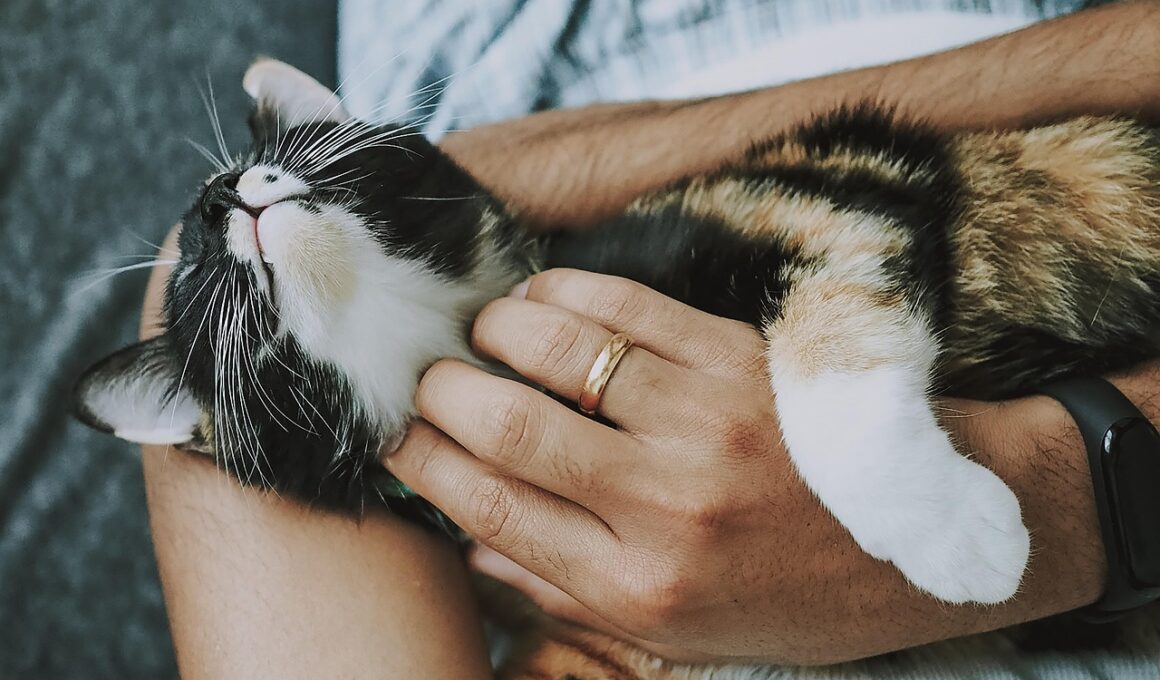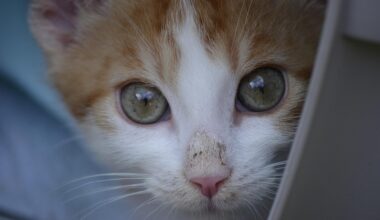Role of Regular Vet Checkups in Maintaining Fresh Breath
Cats are known for their grooming habits, but even the most diligent self-groomers can face dental issues that lead to persistent bad breath. It is essential for cat owners to understand the causes behind feline halitosis, as neglecting dental care can result in serious health problems for your furry friend. Regular veterinary checkups play a crucial role in both prevention and treatment of bad breath associated with dental disease. During these checkups, your vet can assess your cat’s oral health and determine the underlying causes of their bad breath. Many cats develop tartar buildup and gingivitis, which can cause unpleasant odors. The veterinarian can also provide professional cleaning, removing plaque that you might miss during at-home brushing. Additionally, if your cat has specific dental diseases such as periodontal disease, your vet can discuss appropriate treatments that might include antibiotics or dental surgery. Being proactive in your cat’s dental care through regular vet visits can help ensure they enjoy fresh breath and a healthy mouth for years to come.
Understanding the importance of dental health is crucial to your cat’s overall well-being. Bad breath is often the most noticeable symptom of dental issues, but not the only one. During routine vet visits, other indicators such as gum inflammation, tooth loss, and even signs of pain may also be observed. Since many cats are proficient at hiding discomfort, these checkups allow veterinarians to identify dental problems before they escalate. Implementing a regular dental care routine including professional cleanings can significantly reduce the risk of gum disease and tooth decay. In many cases, consistent dental hygiene at home can complement the veterinary care received. This may involve using dental treats, brushing your cat’s teeth, or providing water additives designed to combat plaque. Remember that every cat is different, and your veterinarian can help tailor a dental care plan specific to your pet’s needs. Investing in your cat’s dental health not only prevents bad breath but also contributes positively to their overall health and quality of life, making checkups an essential part of responsible pet ownership.
Understanding Bad Breath Causes
There are several underlying reasons why your cat may develop bad breath, ranging from dental-related issues to systemic health problems. Dental disease stands out as the most common cause of foul breath in cats, typically characterized by plaque buildup and inflammation of the gums. If left untreated, these conditions can worsen and lead to serious consequences. Additionally, feline bad breath can also indicate other health concerns, such as kidney disease or diabetes. For example, if your cat’s breath has a sweet smell, it may be a sign of high blood sugar levels, while a fishy odor may suggest kidney problems. Regular vet checkups are fundamental for diagnosing the exact cause of bad breath because they often conduct comprehensive examinations, including blood tests or imaging when necessary. These tests help uncover issues that might not be apparent during a simple visual inspection of the cat’s mouth. The mere act of seeking help from a veterinarian for bad breath issues can offer new insights into maintaining your cat’s dental hygiene and exceptional health.
Once the underlying causes of bad breath have been diagnosed, effective treatment options can be put in place. Possible interventions can include professional dental cleanings performed by a veterinarian, which are essential for removing plaque and tartar buildup that regular brushing might miss. In addition to cleanings, your veterinarian may recommend specific dental products designed to improve oral hygiene at home, such as dental chews, special food formulated with dental benefits, or oral rinses that help freshen breath. In severe cases, surgical intervention may be required to address advanced dental disease or remove diseased teeth. Additionally, if the bad breath is symptomatic of an underlying health condition like diabetes or kidney disease, treating those issues can greatly alleviate the odor. It is critical to follow your veterinarian’s recommendations closely and maintain a well-structured dental care routine for your cat. This proactive approach will lead to fresher breath, better oral health, and a more enjoyable experience for both you and your feline companion.
Creating a Home Dental Care Routine
Establishing a home dental care routine can significantly reduce incidences of bad breath, contributing to happier and healthier cats. Start slow by introducing your cat to brushing their teeth gradually. Using cat-specific toothpaste, as human toothpaste can be toxic to cats, always begins the process. While some cats may resist initially, positive reinforcement can encourage them to accept this new aspect of their care. Gradually incorporating dental treats designed to improve oral health can also enhance your efforts. These treats can help reduce plaque and tartar buildup while keeping your cat engaged. Additionally, providing water additives specifically designed for feline oral health can make a significant difference as they help control bacteria that form plaque. Regular vet visits for professional cleanings should be planned in conjunction with your home care routine to ensure comprehensive dental health. Being consistent in your approach is vital, as neglect can lead to long-term problems. Ultimately, investing time in your cat’s dental care at home ensures they experience fresher breath and feel more comfortable overall.
Overall, understanding the importance of regular veterinary checkups in maintaining fresh breath cannot be overstated. It is crucial to recognize that a veterinarian does not just address dental problems as they arise; instead, they are your partner in ensuring your cat’s long-term health and well-being. Routine vet appointments allow early detection of dental issues before they develop into serious problems. Moreover, educating yourself about your cat’s specific needs in terms of dental care is equally important. Each cat may have unique requirements based on their breed, age, and overall health. By maintaining a regular checkup schedule, you can remain informed about any changes or concerns regarding your cat’s breath and dental health. Your veterinarian can provide insights and guidance tailored to your cat’s specific situation. Furthermore, creating an environment where your cat enjoys good dental care not only involves regular checkups but also encourages a habit of healthy chewing, playing with dental toys, and eating a balanced diet enriched with nutrients that promote oral health.
Conclusion: Invest in Their Dental Health
In conclusion, investing time and effort into your cat’s dental health is invaluable. Recurrent veterinary checkups play a significant role in managing not just bad breath, but also your pet’s overall health. By working closely with your veterinarian, you can develop a proactive plan for maintaining your cat’s teeth and gums in excellent condition. The repercussions of neglecting dental care can be severe, leading to pain, tooth loss, and even systemic health issues that affect other organs. Bad breath should not be dismissed as simply a nuisance; it can often signal deeper health issues that warrant attention. Make the commitment to prioritize your cat’s dental care by scheduling annual checkups and implementing a solid home routine. This collaborative approach will ensure long-term health benefits, a happier pet, and the pleasant companionship of a cat with fresh breath. Embrace this responsibility fully so your beloved cat can enjoy a healthier, happier life free from the discomfort of bad breath.


